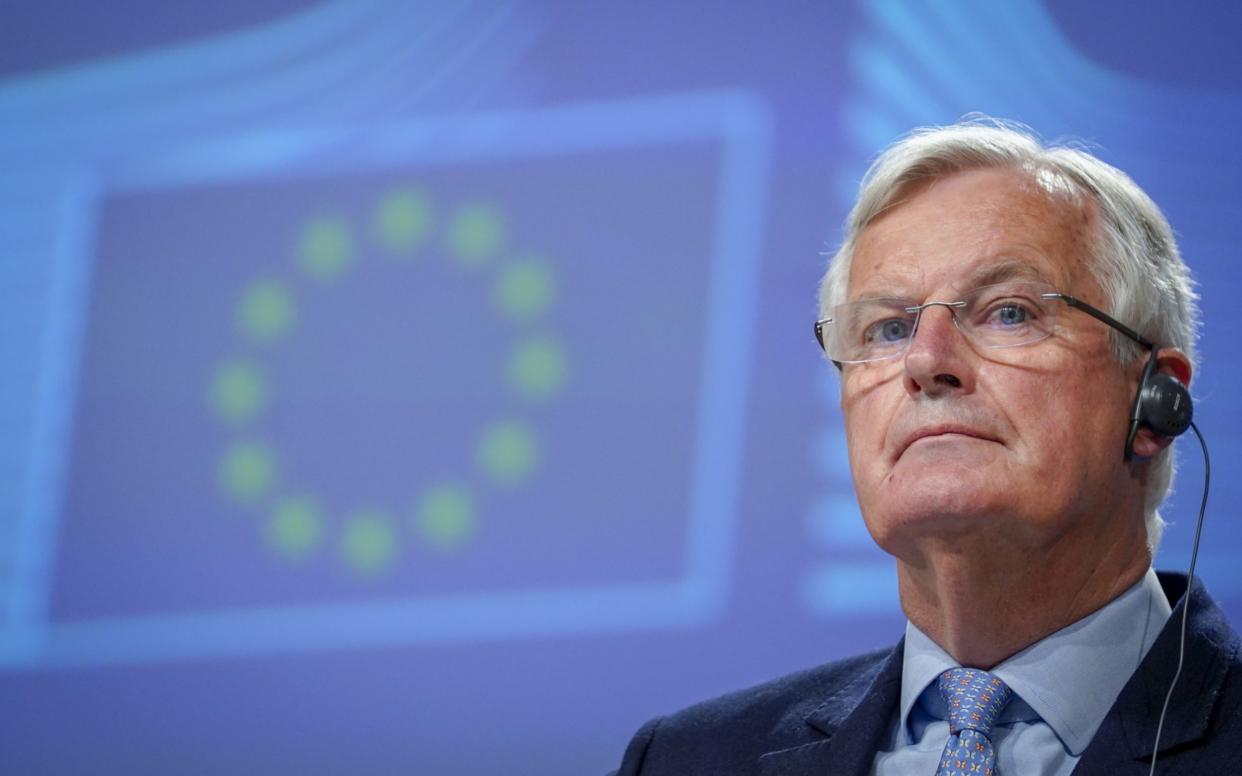Britain moving away from tariff-free deal as EU offers to extend talks to October for last-minute agreement

Britain is willing to move away from a zero tariff trade deal with Brussels, it emerged yesterday as Michel Barnier suggested a last minute agreement could be struck in October.
UK negotiators told Brussels they would accept some tariffs in return for the bloc dropping its demands for level playing field guarantees during the fourth round of negotiations.
"We floated that. It fell slightly on stony ground at the moment but it is still in there in the discussions," a senior UK negotiating official said.
The guarantees are meant to ensure fair competition and prevent undercutting of standards, but the UK argues they restrict the ability to diverge from EU rules.
The round was the last before a June meeting between Boris Johnson and the presidents of the EU institutions, which the UK hopes will break the impasse.
Mr Barnier suggested yesterday officials could enter secret “tunnel negotiations” before the end of October, suggesting talks will go to the wire.
The so-called tunnel talks, where negotiators are locked in rooms thrashing out final details, were held twice to find breakthroughs on the Irish border issue in the negotiation over the Withdrawal Agreement.
Mr Barnier said: “We’re going to go right up to the wire in October to find an agreement”.
But a senior UK source said: “October is too late for us to conclude this. We need to work intensively now and into July to see if we can find the high level trade offs to unlock the deal.”
The EU’s trade deals with Canada and Japan have less stringent level playing field guarantees and have tariffs on a small number of goods.
EU officials said a trade deal with tariffs, which would be likely to hit agricultural exports, could not be negotiated before the end of the transition period at the end of the year. Downing Street has ruled out extending the deadline.
Both sides agreed to try and strike a zero-tariff, zero quota trade deal before the end of the year but talks are deadlocked over the issues of fishing, the future role of the European Court of Justice and the level playing field guarantees.
Failure to finalise the trade agreement by the end of the year will mean the EU and UK trading on far less lucrative WTO terms and with many more tariffs. It also raises the prospect of a hard border on the island of Ireland.
Mr Barnier suggested he was willing to compromise but he warned that “no significant progress” had been made in the week’s talks.
“These negotiations will no doubt need some extra political momentum and I hope for that fast,” Mr Barnier said in the clearest hint yet he needs fresh political instruction from EU leaders.
“If we are to make progress, it is clear that we must intensify and accelerate our work,” David Frost, the UK’s negotiator, added following the talks.
Mr Barnier’s negotiating mandate calls for the bloc’s state aid laws to continue to be observed in Britain after the end of the Brexit negotiations, which the UK rejects along with the other level playing field guarantees.
Mr Barnier signalled the demand, which would mean a continued role for the European Court of Justice over government bailouts and mergers, had been dropped.

“We need to work together in order to come up with the appropriate toolbox, the robust commitments,” he said, “so they can ensure long-term fair sustainable competition between the EU and UK but we have not got there yet.”
Mr Barnier’s mandate calls for a fishing agreement that gives EU boats access to UK waters under the same conditions as now, which is ruled out by the UK. He accepted that the EU demand would not be met.
“We recognise now that the UK is a third [non-EU] country it has sovereignty over its own waters. It is no longer bound by the Common Fisheries Policy,” he said.
“On fisheries we have very strong positions on both sides,” Mr Barnier said, “The EU wants the status quo. The UK wants to change everything.”
“If we want an agreement we will have to discuss somewhere between the two positions. We are prepared to discuss what needs to be discussed,” he added.
Mr Barnier said the EU would not accept the UK’s demand for annual negotiations over fishing opportunities and warned agreement on fisheries was a precondition for the trade deal.
“Such important agreements are always agreed at the last minute, if there is agreement,” the EU’s chief negotiator said.

 Yahoo Movies
Yahoo Movies 
